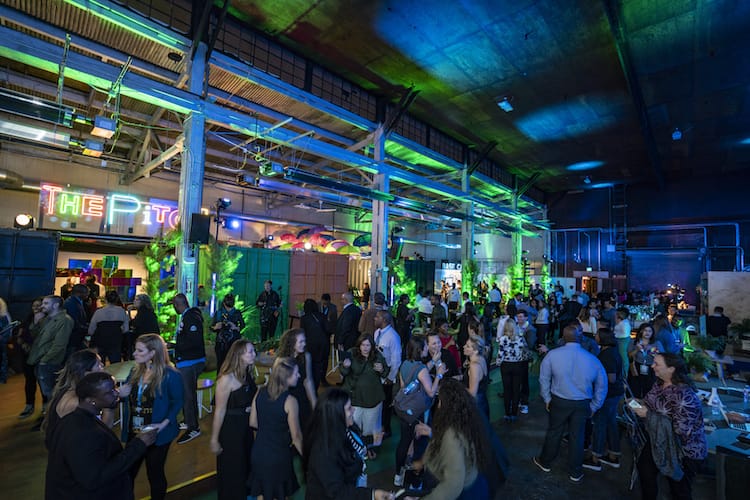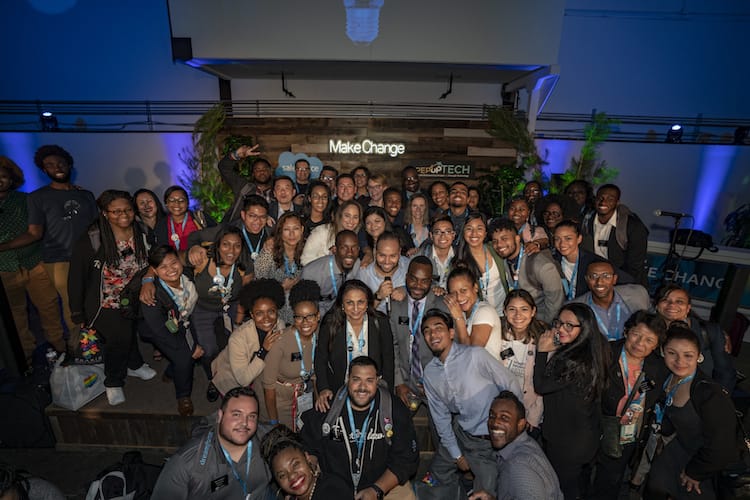
Get your FREE 30-day trial.
Please complete all fields.
Artificial intelligence.
Internet of Things.
Easy mobile experiences.
Fast, iterative application development.
These days, it's hard to get through a LinkedIn feed without encountering a post about how businesses need to master them all to compete in today's world.
As companies work to deliver better customer relationships through connected technology, business leaders are discovering that involving diverse points of view from the get-go is more critical than ever. Artificial intelligence (AI) is a great example. If AI is constructed by groups with very similar cultural approaches and the data they pull from is over-weighted with information from one type of background, the model may not be as responsive to the expectations of people in a world of growing diversity. They might, in effect, be creating a machine that only reflects their world view.
For many companies, bringing new voices and new technologies to the table is daunting. Organizations veer one way or another depending on the week. And it seems easier to decouple the issues than tackle them together.
So how do you bring the two paths — technology and diversity of thought — together in a way that's real, sustainable, and built into the system you're trying to change?
Earlier this year, while moving on the dance floor of a Dreamforce party in San Francisco, I realized I'd not only found a way to answer that question about change, but I was standing in the middle of the change itself.
You see, I was in a crowd that had gathered to celebrate the success of a group named PepUp Tech. And the people I was standing shoulder to shoulder with, dancing with, laughing with, crying with (yes, there were a couple of tears), and talking with (sometimes yelling — depending on the music volume), well, they were all different. Some were executives with long histories in business; others were kids from the Bronx who had just finished high school. There were single moms and dads who spent evenings developing apps after they put the kids to bed. There were MBAs from Stanford. There were entrepreneurs who’d never set foot on an Ivy League campus. There were, in other words, people from a lot of different backgrounds, all together, creating and opening new worlds of opportunity with faster app dev tools, AI, IoT, and more — regardless of the places they came from, or the places they lived in today.

Part networking, part party, attendees mix and mingle at PepUp Tech's Make Change event
How did this happen?
As many of these things do, it started simply and humbly with a feeling of being different, wanting more, and having a fearless conviction that there is a path to be forged.
It started with Selina Suarez, who found herself working at a nonprofit education funder and noticing that many people were being stopped from tech careers because tech was simply not even a part of their world to begin with.
As the oldest of 12 children in a low-income, urban environment in New York City, technology wasn't even something Suarez herself had remotely thought about while growing up. It was only through a series of connections, her natural curiosity, and a strong sense of perseverance that that changed.
“Once I built my first database and got into Salesforce,” said Suarez, “the trajectory of my life and ultimately my family was changed forever.”
A meeting coordinated by Suarez's mentor (and Salesforce advocate), Mary Scotten, a few years ago at Dreamforce, brought her together with the three women who would join her in the journey to make PepUp Tech what it is today — Rebe de la Paz, Stephanie Herrera, and Shonnah Hughes.
While the three women grew up in geographically different places — la Paz hails from Chicago, Herrera is from Austin, and Hughes lives in Minneapolis — like Suarez they were all inspired by the careers and opportunities their experience with Salesforce had brought each of them. And each had already set out on a mission to bring more women and people of color into the tech world — and the natural bond it gave them was more than present on stage at Dreamforce.
The model they've built leverages Trailhead (the fun way to learn Salesforce for free) while teaching other skills to help find employment (like interview and resume writing training). What's unique, however, is the way the group introduces jobseekers to the Salesforce Trailblazer Community, where learning is ongoing and access to job leads starts to open up. Coming to Dreamforce, and other Salesforce events like World Tour, Salesforce Saturdays, or community get-togethers like Women In Tech is not only another way to follow up on those leads, but also integral to what the group has set out to do.
As Suarez told me last summer when I met her at TrailheaDX, “These students, they’ve never done anything like this before. For them, it’s the first time they’re being introduced to people who want to see them succeed. It’s life changing. I mean, they got to meet Stevie Wonder yesterday. They got to be part of the Equality Awards, with people who are fighting for real change in this country. They got to hear Marc Benioff talk about his values. They heard from everyone, right from the top, all the way down. They’re on week eight of a 10-week boot camp and so for eight weeks I’ve been telling them about the value of Salesforce and then they come here and they see it’s true. They know it’s real.”
Standing in front of the stage at Colorbloq, those words were even more resonant as I listened to Hughes make clear how far some of these kids had come. “A lot of our students have never even been outside of their neighborhood.” And she was unapologetic about what she hoped PepUp Tech and the crowd could do for them. “We want to open up the entire world for them.”
Which was why being seen at Dreamforce where the mission to create new tech opportunities for groups who are under-represented had been featured — along with 70 of the group's students — in Marc Benioff's keynote address just a few days before meant something more, too.
It meant being seen by business leaders, hiring managers, and influencers. Not in a picture. Or on a billboard. Or in a film. Not as a representation. But there, on the floor of Moscone Center, standing with Marc Benioff, Keith Block, Stephanie Buscemi, Sarah Franklin, and others — as a part of the community.
Present.
For me, it is a movement with real depth and power. Because it clearly didn't end with the celebration at Colorbloq, a moment that was just a point on a path that would continue on in each of their lives and the lives they'd go on to touch and inspire others.

PepUp Tech program members gather for a picture after a night filled with Korean tacos, networking, and dancing.
Thinking back on the evening, which featured conversations with Salesforce Co-CEO Keith Block, the comedic observations of Sasheer Zamata, as well as an interview with the former presidential advisor Valerie Jarrett, it truly felt different from anything I'd experienced before.
In the glare of the stage lights, the four women were given props. But it was their genuine recognition of what everyone in the crowd had done that struck me most deeply. “It's all you,” said la Paz. “All you.”
The Colorbloq crowd went wild.
And no one was thinking about how to “make sure everyone is represented” because they were there. Rather, they were thinking, how can we open this party up to more people. From more groups.
And being there, and continuing to be there, well, that's change.